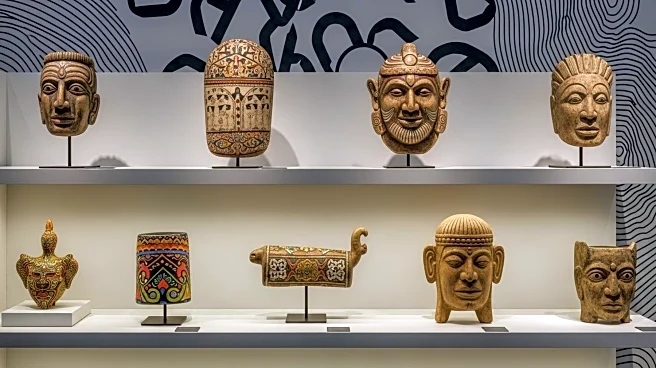What is the story about?
What's Happening?
The experience of being a Black anthropologist is explored through the lens of Zora Neale Hurston's work and the broader challenges faced by Black scholars in the field. The article discusses the limited representation of Black anthropologists in academic curricula and the discipline's historical focus on nonwhite subjects through a predominantly white perspective. The author reflects on their journey from academia to Wall Street, where they encountered Black Capitalists using capitalism to foster community uplift. This experience led to a redefinition of what it means to be a Black Capitalist and an anthropologist, challenging traditional academic norms and highlighting the need for more inclusive and community-focused research practices.
Why It's Important?
The discussion around Black anthropologists and Black Capitalists underscores the ongoing need for diversity and inclusion within academia and the broader socio-economic landscape. By challenging traditional academic practices and highlighting the contributions of Black scholars, the article calls for a reevaluation of how knowledge is produced and shared. This shift is crucial for creating a more equitable and representative academic environment that values diverse perspectives and experiences. The narrative also emphasizes the potential of Black Capitalists to drive economic and social change, offering new pathways for community development and empowerment.
Beyond the Headlines
The article raises important questions about the role of capitalism in Black communities and the potential for Black Capitalists to redefine economic participation. It also highlights the tension between traditional academic practices and the need for more inclusive research methodologies that prioritize community engagement and empowerment. These discussions are vital for addressing systemic inequalities and fostering a more inclusive and equitable society.














